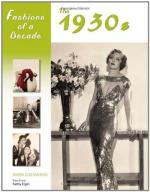|
This section contains 184 words (approx. 1 page at 300 words per page) |

|
In the 1930s there was an enormous amount of tension between professional educators who argued that education was best pursued by "uplifting" children to the standards of a white, Anglo-Saxon, Protestant, middle-class culture and those who sought to build new, culturally plural standards for educational achievement. The dispute often took the form of debates over standbys of an older educational tradition, such as instruction in Latin, but it also focused on the sort of instruction in politics and economics pursued in the schools. Middle-class educators insisted, even during the Depression, that schools should teach the merits of an unregulated, laissez-faire economy and conservative, Anglo-Saxon political leadership. Counts condemned such an approach, insisting that "it constitutes an attempt to educate the youth for life in a world that does not exist. Teachers cannot evade the responsibility of participating actively in the task of reconstituting the democratic tradition and...
|
This section contains 184 words (approx. 1 page at 300 words per page) |

|




